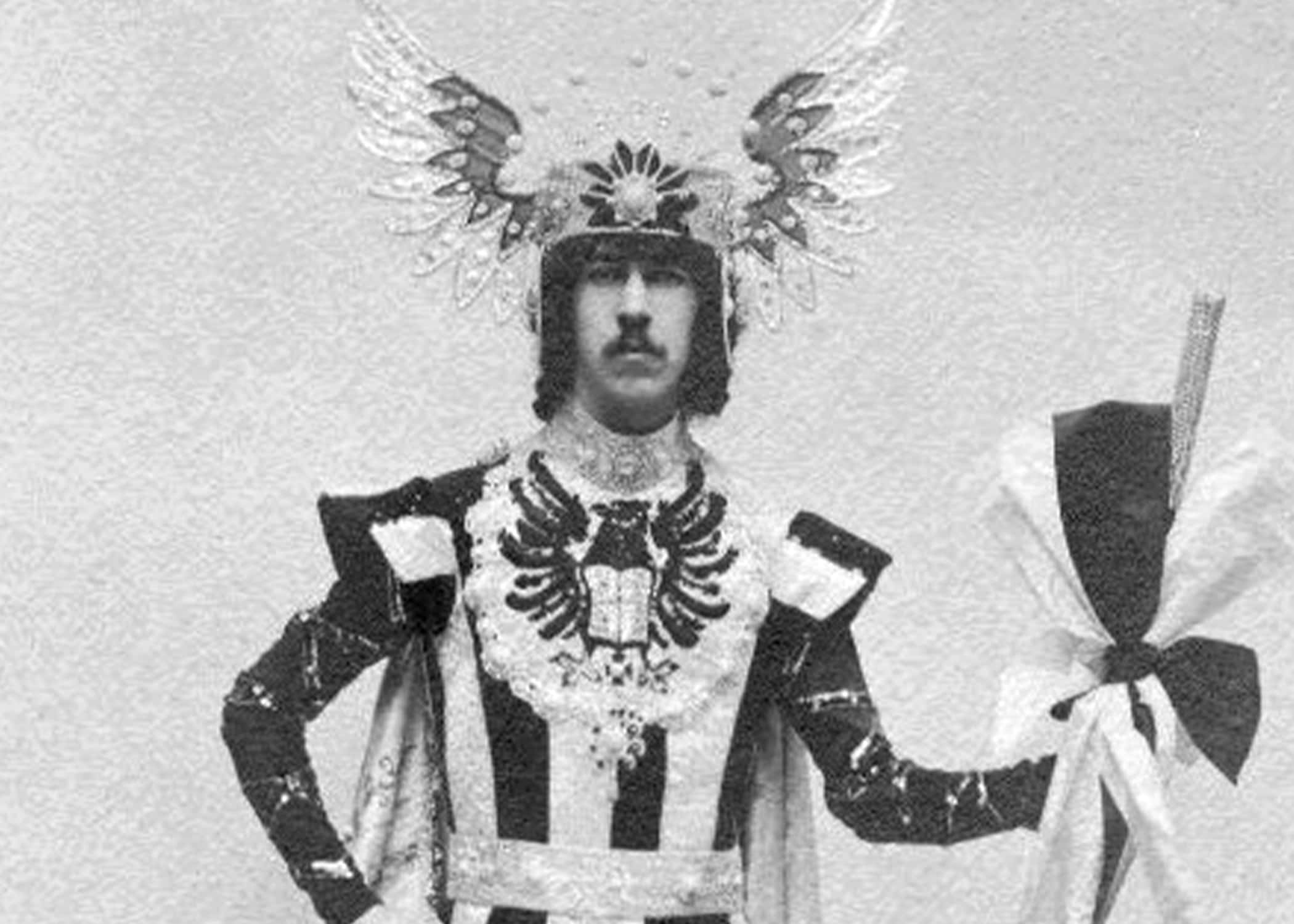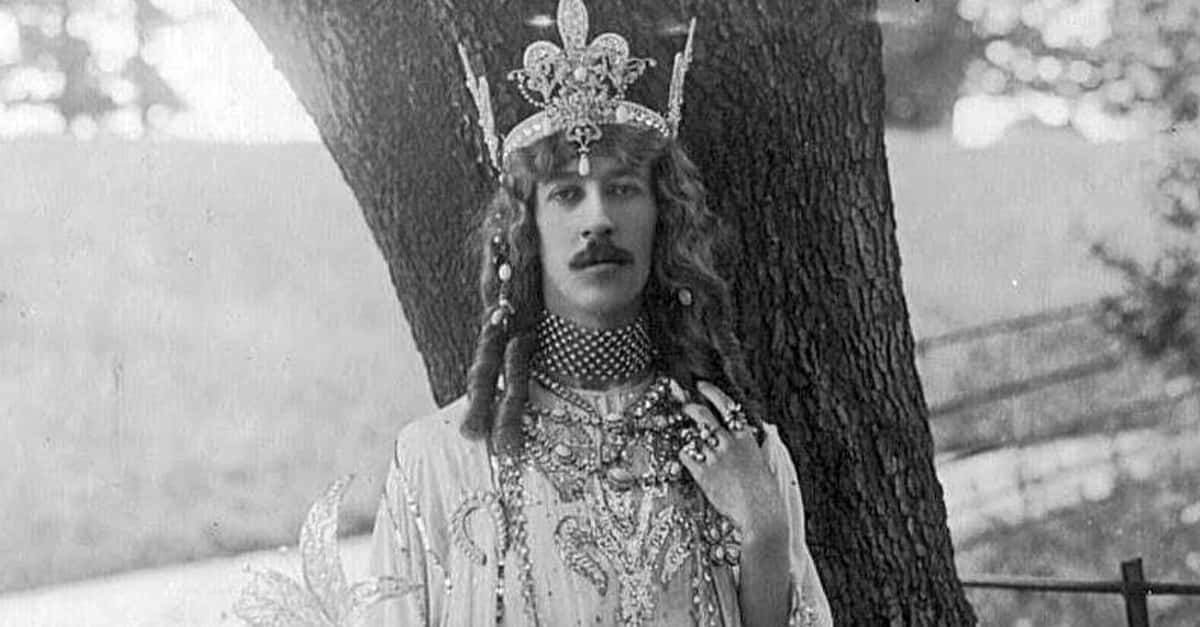When it comes to Henry Cyril Paget, the term “black sheep” is an understatement. The English aristocracy absolutely hated Paget, also called the 5th Marquess of Anglesey. The Complete Peerage, an exhaustive tome of the country’s land-owning gentry, described him like this:
“[He] seems only to have existed for the purpose of giving a melancholy and unneeded illustration of the truth that a man with the finest prospects, may, by the wildest folly and extravagance, as Sir Thomas Browne says, 'foully miscarry in the advantage of humanity, play away an uniterable life, and have lived in vain.”
After Paget died, among a long list of cruel and unflattering obituaries, this was the kindest one: “From boyhood to death no one had ever loved him…[he was] a strange and repellent spirit opaquely incomprehensible and pathetically alone.”
From the moment he died at just 29 years old, it seemed English society was ready to denounce and forget about Henry Cyril Paget. So who was he? A brute? A traitor? A murderer? Of course not. The 5th Marquess of Anglesey was, above all else, a spectacle. A gaudy, flamboyant, effeminate whirlwind—who absolutely horrified upper-class English society.
Henry Cyril Paget Editorial
The Marquess
Paget, nicknamed "Toppy," was born into a wealthy, aristocratic, English family. His father, the 4th Marquess of Anglesey, was a Navy man; the Vice-Admiral of the Coast. Henry went to Eton College, and after ended up in the military himself as a Lieutenant with the Royal Welsh Fusiliers. At 24 years old, he got married. He seemed like any other young nobleman. Then his father died.
Suddenly Henry took on the family’s title and inherited their estates—all 30,000 acres of them. The way the landed gentry worked in those days, just having the title and the lands brought in £110,000 every year (that’s about £12 million today). And that’s the moment Paget stopped playing the game. He had the land and the money. Because of his title, the cash was coming in no matter what he did. So what did he do? He started spending it.

Glam Before Glam
I would hazard a guess that the schooling, the military, and the wife were not Paget’s idea. As soon as he got the key to the castle (literally), he dropped everything and turned to a life of absurd luxury and extravagance.
Looking at the pictures of Paget today, you would think they were from the 1970s, not the turn of the century. He looks like something between Frank Zappa and David Bowie in his thick moustache and bejewelled robes. Honestly, he looks absolutely amazing.
Paget carried a poodle around with him wherever he went and paid to have his car’s exhaust pipe altered to smell of perfume. If it was gaudy and decadent, Paget needed it—and he'd pay whatever the cost. But his greatest obsession was the theatre. He converted his castle’s chapel into “The Gaiety Theatre” and put on expensive productions, usually with himself in the lead roles.
All the World's a Stage
Paget poached actors and designers from traveling theatre companies by paying them exorbitant salaries. Eventually, he had a good enough staff—all on his personal payroll, of course—to form a troupe of his own.
First in the Gaiety Theatre, then eventually traveling the country, Paget and his band put on flamboyant productions that ranged from Wilde to Shakespeare. The Marquesse himself always had the finest costumes money could buy; his bejewelled Aladdin costume alone was reportedly worth £100,000.
Not a Marriage Man
As you can imagine, Paget’s wife, Lillian, who had married a lieutenant, wasn’t exactly thrilled with her husband’s new lifestyle. The fact that the two of them never consummated their marriage probably bothered her as well. Allegedly, the closest they ever came was the time that he had her pose naked…so he could cover her from head to toe in jewels.
Looking back, many writers have assumed that Paget was gay, citing his flamboyance the fact that he never slept with his wife. However, there doesn’t seem to be any proof that Paget ever had a physical relationship with anyone. From the evidence that we have, it seems as though Paget gave little thought to sexuality—he had other things on his mind.
Life of the Party
Lillian left Paget in 1900, and I can only imagine he was thrilled. He was now even more free to live out his wildest dreams—which mostly involved jewels, perfume, and taking selfies. But while he was a little much, don't go thinking he was some deranged, unbearable outcast.
By all accounts, the people close to Paget absolutely loved him. He was ridiculous and entertaining and, above all else, generous. He was also a pretty decent actor. His plays weren’t just ridiculous, over-the-top exercises in self-indulgence—people actually seemed to enjoy them.
Not Fade Away
Any accountants out there could probably have guessed this already, but Paget’s ludicrous spending habits were not exactly sustainable. By 1904, despite the £110,000 coming in from his lands every year like clockwork, he was in debt to the tune of a whopping £544,000.
He declared bankruptcy, and nearly all of his possessions were sold off to pay back what he owed. His luxurious wardrobe, his perfume-spewing car, his mountains of jewels, all gone. A year later, in 1905, he died of illness at 29. Paget did not fade away, he burnt out—and fast.
Erasure
Upon his death, Paget’s land and titles passed to his cousin, who immediately set about erasing every trace of his predecessor. Every record from the previous seven years was destroyed, and the Gaiety Theatre was converted back into a chapel. The Anglesey estates were quickly brought back into the status quo, and everyone tried to move on as if Henry Cyril Paget was just some kind of bad dream.
Of course, as a member of the gentry, Paget’s death couldn’t go completely unremarked, so in poured the obituaries. They described a weak, deranged, and isolated figure. Many of them sought explanations for his bizarre behavior, which usually tended to relate to the idea that he didn’t spend enough time with other boys his age when he was young. Apparently, he never learned how to be a "proper man."
The Noblest One
The upper classes of Victorian England looked at Henry Cyril Paget and didn’t just see something distasteful—they saw a madman. An anomaly so horrific that his very existence seemed threatening.
These were the same people who venerated Rudyard Kipling and his “white man’s burden.” Who colonized and subjugated people on every single corner of the planet. Who thrived on a system in which a select few got to benefit off of the work of millions, so long as everyone kept in line and did what they were told.
Henry Cyril Paget won the birth lottery and stumbled into a £12 million annual salary for just existing. So what do you think is a better use of that money? To rise through the ranks of the military to go spread the light of the British Empire to all the poor uncivilized peoples of the world, or to throw on a gem-encrusted tiara and silken jumpsuit, hop in your perfume-spewing car, and drive to your own extravagant production, where you can perform for whoever wants to come just for the pure, ridiculous fun of it?
